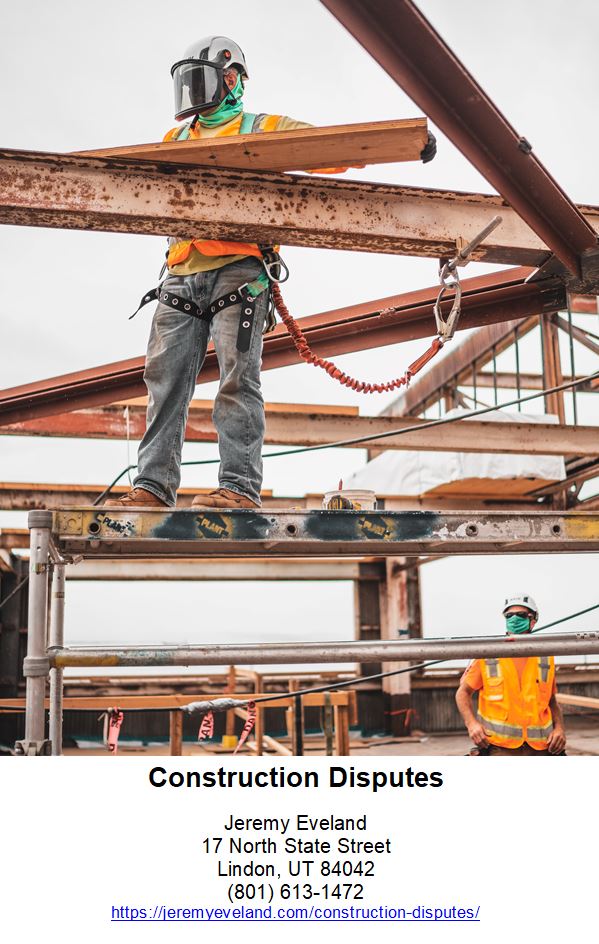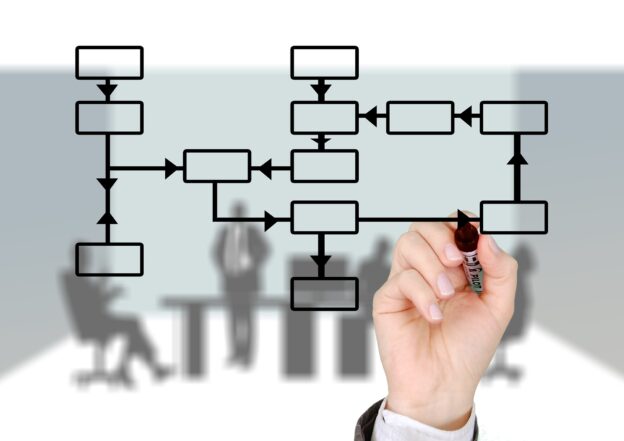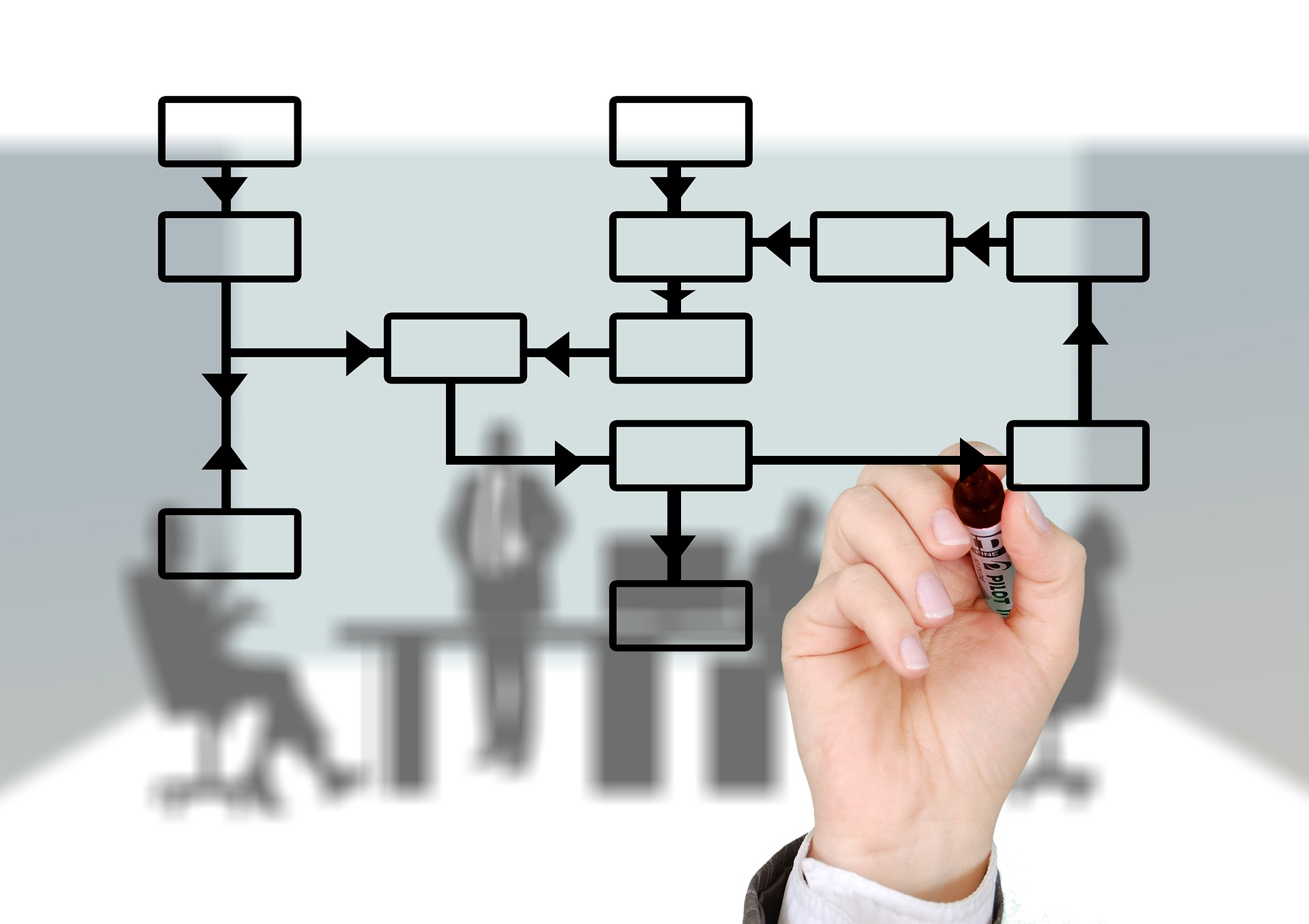-
Construction Lawyer
- Introduction
- Analyzing the Impact of Global Construction Disputes on the Industry
- How Construction Professionals Can Mitigate Risk in Construction Disputes
- Navigating the ICC Arbitration Process for Construction Disputes
- Exploring the Benefits of Alternative Dispute Resolution for Construction Disputes
- Understanding the Pre-Action Protocol for Construction Disputes
- Why You Need A Construction Dispute Lawyer To Help You
- Q&A
“Resolving Construction Disputes: We Make It Right!”
Introduction
Construction disputes are a common occurrence in the construction industry. They can arise from a variety of issues, including contract disputes, delays, cost overruns, and quality issues. Construction disputes can be costly and time-consuming, and can have a significant impact on the project timeline and budget. It is important for all parties involved in a construction project to understand the potential for disputes and to take steps to avoid them. This article will provide an overview of the different types of construction disputes, the causes of disputes, and strategies for resolving them.
Analyzing the Impact of Global Construction Disputes on the Industry
The global construction industry is a major contributor to the world economy, with an estimated value of over $10 trillion. However, the industry is also prone to disputes, which can have a significant impact on the industry as a whole.
Construction disputes can arise from a variety of sources, including contractual issues, delays, cost overruns, and quality issues. These disputes can lead to costly delays, increased costs, and even project abandonment. In addition, disputes can lead to a breakdown in relationships between contractors, subcontractors, and clients, resulting in a lack of trust and cooperation.
The impact of construction disputes on the industry can be significant. Disputes can lead to increased costs, delays, and project abandonment, resulting in a loss of revenue and profits. In addition, disputes can lead to a decrease in the quality of work, as contractors may be more focused on resolving the dispute than on completing the project. This can lead to a decrease in customer satisfaction and a decrease in the reputation of the industry as a whole.
Furthermore, disputes can lead to a decrease in the availability of financing for projects. This can lead to a decrease in the number of projects that can be undertaken, resulting in a decrease in employment opportunities in the industry.
Finally, disputes can lead to a decrease in the number of new entrants into the industry. This can lead to a decrease in competition, resulting in higher prices for construction services.
In order to minimize the impact of disputes on the industry, it is important for all parties involved to take steps to prevent disputes from occurring in the first place. This includes ensuring that contracts are clear and comprehensive, that all parties understand their roles and responsibilities, and that all parties are aware of the potential consequences of disputes. In addition, it is important for all parties to be willing to negotiate and resolve disputes in a timely manner.
By taking steps to prevent disputes and resolving them quickly when they do occur, the global construction industry can ensure that it remains a major contributor to the world economy.
How Construction Professionals Can Mitigate Risk in Construction Disputes
Construction professionals can mitigate risk in construction disputes by taking proactive steps to ensure that all parties involved are aware of their rights and responsibilities. This includes having a clear and comprehensive contract in place that outlines the scope of work, payment terms, and dispute resolution procedures. Additionally, it is important to ensure that all parties are aware of the applicable laws and regulations that govern the project.
It is also important to document all aspects of the project, including any changes or modifications that are made. This documentation can be used to support any claims that may arise during a dispute. Additionally, it is important to keep detailed records of all communications between the parties involved in the project. This can help to provide evidence of any agreements or disagreements that may have occurred during the course of the project.
It is also important to ensure that all parties are aware of their rights and responsibilities under the contract. This includes understanding the terms of the contract, as well as any applicable laws and regulations. Additionally, it is important to ensure that all parties are aware of the dispute resolution process that is outlined in the contract. This can help to ensure that any disputes are resolved in a timely and efficient manner.
Finally, it is important to ensure that all parties are aware of the potential risks associated with the project. This includes understanding the potential for delays, cost overruns, and other issues that may arise during the course of the project. By understanding these risks, construction professionals can take steps to mitigate them and ensure that any disputes are resolved in a timely and efficient manner.
Navigating the ICC Arbitration Process for Construction Disputes
Navigating the International Chamber of Commerce (ICC) arbitration process for construction disputes can be a complex and daunting task. The ICC is a leading international arbitral institution, and its arbitration process is widely used in the construction industry. This article will provide an overview of the ICC arbitration process and offer guidance on how to successfully navigate it.
The ICC arbitration process begins with the filing of a Request for Arbitration. This document must be filed with the ICC Secretariat and must include the names of the parties, the subject matter of the dispute, and the relief sought. Once the Request for Arbitration is filed, the ICC Secretariat will appoint an arbitrator or a panel of arbitrators to hear the case.
The next step in the ICC arbitration process is the exchange of documents and information between the parties. This is known as the “discovery” phase. During this phase, the parties must exchange all relevant documents and information related to the dispute. This includes contracts, plans, drawings, and other documents that are relevant to the dispute.
Once the discovery phase is complete, the parties will proceed to the hearing phase. During this phase, the parties will present their arguments and evidence to the arbitrator or panel of arbitrators. The arbitrator or panel of arbitrators will then make a decision based on the evidence presented.
Finally, the ICC arbitration process ends with the issuance of an award. This award is binding on the parties and is enforceable in most countries.
Navigating the ICC arbitration process for construction disputes can be a complex and daunting task. However, with the right guidance and preparation, it is possible to successfully navigate the process and achieve a favorable outcome. It is important to consult with experienced legal counsel to ensure that all steps of the process are properly followed and that all relevant documents and information are exchanged. Additionally, it is important to be prepared for the hearing phase and to present a strong case to the arbitrator or panel of arbitrators. With the right preparation and guidance, it is possible to successfully navigate the ICC arbitration process for construction disputes.
Exploring the Benefits of Alternative Dispute Resolution for Construction Disputes
Alternative Dispute Resolution (ADR) is an increasingly popular method of resolving construction disputes. ADR offers a number of advantages over traditional litigation, including cost savings, speed, and confidentiality. This article will explore the benefits of ADR for construction disputes.
Cost Savings
One of the primary benefits of ADR is cost savings. Litigation can be expensive, with court costs, attorney fees, and other expenses adding up quickly. ADR, on the other hand, is typically much less expensive. This is because ADR is often conducted outside of the court system, which eliminates the need for costly court fees and other expenses. Additionally, ADR is often conducted on a much shorter timeline than litigation, which can further reduce costs.
Speed
Another benefit of ADR is speed. Litigation can take months or even years to resolve, while ADR can often be completed in a matter of weeks or even days. This is because ADR is typically conducted outside of the court system, which eliminates the need for lengthy court proceedings. Additionally, ADR is often conducted in a more informal setting, which can help to expedite the process.
Confidentiality
Finally, ADR offers the benefit of confidentiality. Litigation is a public process, which means that all proceedings are open to the public. This can be problematic for construction disputes, as the details of the dispute may be sensitive or confidential. ADR, on the other hand, is typically conducted in a private setting, which allows for greater confidentiality. This can be beneficial for both parties, as it allows them to resolve their dispute without the risk of public scrutiny.
In conclusion, ADR offers a number of advantages over traditional litigation for construction disputes. It is typically less expensive, faster, and more confidential than litigation. For these reasons, ADR is becoming an increasingly popular method of resolving construction disputes.
Understanding the Pre-Action Protocol for Construction Disputes
The Pre-Action Protocol for Construction Disputes (PAP) is a set of rules and procedures that must be followed before a construction dispute can be taken to court. It is designed to encourage parties to resolve their disputes without the need for litigation.
The PAP applies to all construction disputes in England and Wales, including those involving contracts for the supply of goods and services, and those involving the construction of buildings and other works. It applies to disputes between employers and contractors, between contractors and subcontractors, and between employers and consultants.
The PAP sets out the steps that parties must take before they can start court proceedings. These steps include:
1. Identifying the dispute: The parties must identify the dispute and the parties involved.
2. Pre-action correspondence: The parties must exchange letters setting out their respective positions and any relevant documents.
3. Pre-action meetings: The parties must meet to discuss the dispute and attempt to resolve it without the need for court proceedings.
4. Expert determination: If the parties cannot resolve the dispute, they may agree to refer it to an expert for determination.
5. Alternative dispute resolution: If the parties cannot agree to refer the dispute to an expert, they may agree to use alternative dispute resolution (ADR) such as mediation or arbitration.
The PAP is designed to encourage parties to resolve their disputes without the need for litigation. It sets out the steps that parties must take before they can start court proceedings, and provides guidance on how to conduct pre-action correspondence, pre-action meetings, expert determination and alternative dispute resolution. By following the PAP, parties can save time and money, and avoid the stress and uncertainty of court proceedings.
Why You Need A Construction Dispute Lawyer To Help You
Construction disputes can be complex and costly. A construction dispute lawyer can help you navigate the legal process and protect your rights.
Construction disputes can arise from a variety of issues, including contract disputes, delays, defective work, and more. These disputes can be difficult to resolve without the help of a knowledgeable attorney. A construction dispute lawyer can help you understand your rights and obligations under the contract, as well as the applicable laws and regulations.
A construction dispute lawyer can help you negotiate a resolution with the other party. They can also help you prepare for and participate in mediation or arbitration. If necessary, they can represent you in court.
A construction dispute lawyer can also help you protect your rights and interests. They can review the contract to ensure that it is fair and enforceable. They can also help you identify any potential legal issues that could arise from the dispute.
Finally, a construction dispute lawyer can help you understand the potential costs associated with the dispute. They can help you determine the best course of action to take to minimize the costs and maximize the potential outcome.
A construction dispute lawyer can be a valuable asset in resolving a dispute. They can help you understand your rights and obligations, negotiate a resolution, and protect your interests. If you are involved in a construction dispute, it is important to seek the advice of an experienced attorney.
Q&A
Q1: What is a construction dispute?
A1: A construction dispute is a disagreement between two or more parties involved in a construction project, such as the contractor, subcontractor, owner, architect, or engineer. These disputes can arise from a variety of issues, including contract violations, delays, cost overruns, and quality of work.
Q2: What are the most common causes of construction disputes?
A2: The most common causes of construction disputes are contract violations, delays, cost overruns, and quality of work. Other causes can include design errors, failure to meet safety standards, and failure to obtain necessary permits.
Q3: How can construction disputes be resolved?
A3: Construction disputes can be resolved through negotiation, mediation, arbitration, or litigation. Negotiation is the most common method of resolving disputes, as it allows the parties to come to an agreement without involving a third party. Mediation and arbitration involve a neutral third party who helps the parties reach an agreement. Litigation is the last resort and involves a court hearing.
Q4: What are the benefits of resolving construction disputes through negotiation?
A4: Negotiation is the most cost-effective and efficient way to resolve construction disputes. It allows the parties to come to an agreement without involving a third party, and it can be done quickly and without the need for costly legal fees.
Q5: What are the risks of resolving construction disputes through litigation?
A5: Litigation is the most expensive and time-consuming way to resolve construction disputes. It also involves a court hearing, which can be unpredictable and can result in a decision that is not favorable to either party.
Q6: What should I do if I am involved in a construction dispute?
A6: If you are involved in a construction dispute, the first step is to contact an experienced construction lawyer. They can help you understand your rights and options, and can advise you on the best course of action. They can also help you negotiate a resolution or represent you in court if necessary.
Areas We Serve
We serve individuals and businesses in the following locations:
Salt Lake City Utah
West Valley City Utah
Provo Utah
West Jordan Utah
Orem Utah
Sandy Utah
Ogden Utah
St. George Utah
Layton Utah
South Jordan Utah
Lehi Utah
Millcreek Utah
Taylorsville Utah
Logan Utah
Murray Utah
Draper Utah
Bountiful Utah
Riverton Utah
Herriman Utah
Spanish Fork Utah
Roy Utah
Pleasant Grove Utah
Kearns Utah
Tooele Utah
Cottonwood Heights Utah
Midvale Utah
Springville Utah
Eagle Mountain Utah
Cedar City Utah
Kaysville Utah
Clearfield Utah
Holladay Utah
American Fork Utah
Syracuse Utah
Saratoga Springs Utah
Magna Utah
Washington Utah
South Salt Lake Utah
Farmington Utah
Clinton Utah
North Salt Lake Utah
Payson Utah
North Ogden Utah
Brigham City Utah
Highland Utah
Centerville Utah
Hurricane Utah
South Ogden Utah
Heber Utah
West Haven Utah
Bluffdale Utah
Santaquin Utah
Smithfield Utah
Woods Cross Utah
Grantsville Utah
Lindon Utah
North Logan Utah
West Point Utah
Vernal Utah
Alpine Utah
Cedar Hills Utah
Pleasant View Utah
Mapleton Utah
Stansbury Par Utah
Washington Terrace Utah
Riverdale Utah
Hooper Utah
Tremonton Utah
Ivins Utah
Park City Utah
Price Utah
Hyrum Utah
Summit Park Utah
Salem Utah
Richfield Utah
Santa Clara Utah
Providence Utah
South Weber Utah
Vineyard Utah
Ephraim Utah
Roosevelt Utah
Farr West Utah
Plain City Utah
Nibley Utah
Enoch Utah
Harrisville Utah
Snyderville Utah
Fruit Heights Utah
Nephi Utah
White City Utah
West Bountiful Utah
Sunset Utah
Moab Utah
Midway Utah
Perry Utah
Kanab Utah
Hyde Park Utah
Silver Summit Utah
La Verkin Utah
Morgan Utah
Construction Disputes Consultation
When you need help with Construction Disputes call Jeremy D. Eveland, MBA, JD (801) 613-1472 for a consultation.
Jeremy Eveland
17 North State Street
Lindon UT 84042
(801) 613-1472
Related Posts
Estate Planning Lawyer West Jordan Utah
Business Acquisition Lawyer Sandy Utah
Estate Planning Lawyer Orem Utah
Legal Requirements To Form A Trust
Charitable Estate Planning Trusts
Estate Planning Lawyer Sandy Utah




